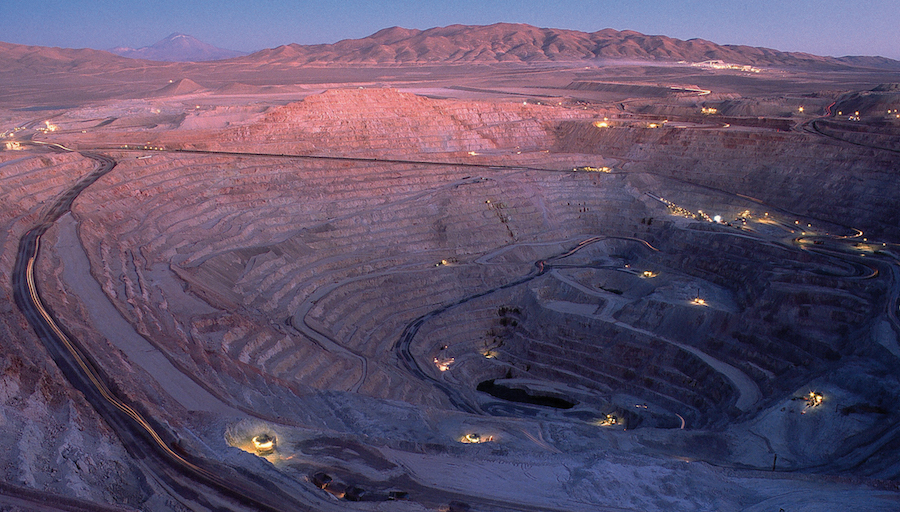Workers vote to strike at Escondida, world’s largest copper mine

About 2,500 workers at BHP Billiton’s Escondida mine in Chile, the world’s biggest copper operation, voted late Tuesday to reject a company wage offer and opted instead to go on strike.
The walk out could begin as early as Friday, a union representative told Diario Financiero (in Spanish), but it’d likely be deferred for a five-day government mediation to attempt a resolution.
Miners have accused BHP, which holds a 57% stake in the mine, of offering no pay increase, seeking to cut bonuses, and removing top-up payments for those who take voluntary redundancy, as well as changing shift hours.
Escondida is forecast to produce 1.1 million tonnes of copper in 2017, about 5% of the world’s total.
The mine, located in the copper-rich Antofagasta region, in northern Chile, supports just over 10,000 full-time jobs and it is forecast to produce about 1.1 million tonnes of in the 12 months to June 30, according BHP figures. That is equivalent to about 5% of the world’s total copper production.
Prices for the red metal have been testing $6,000 a tonne this week, an almost 18-month high, on the possibility of such supply disruption. But the metal fell 0.9% on the London Metal Exchange Wednesday to $5,935.50 a tonne around noon, having earlier touched a two-month peak of $6,007.
Chile produces 28% of the world’s copper and the country’s output dropped by 3.9% in 2016, mainly due to lower production at Escondida and Anglo American Sur.
Production in the South American nation is expected to grow by 4.3% according to the Chilean government forecaster adding that Escondida would account for almost all of the expected increased output.
BHP, already the world’s second-biggest listed copper miner, decided last year to raise its annual exploration spending by 29%, allocating nearly all its $900 million budget to finding new copper and oil deposits. The mining giant is committed to make of those two commodities the pillars of its future growth.
{{ commodity.name }}
{{ post.title }}
{{ post.date }}




Comments